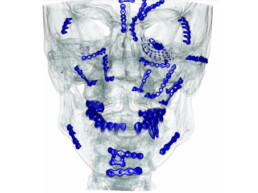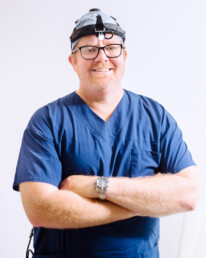Facial Trauma Surgery

Severe facial trauma requiring titanium plates and screws to reconstruct
What is Facial trauma?
Facial trauma is an injury to the face usually resulting from sporting injuries, workplace accidents, road traffic accidents, falling over and unfortunately interpersonal violence. Left untreated, the result can be unnecessary disfigurement and deformity. Anyone suffering facial trauma should see an oral & maxillofacial specialist as soon as possible.
Facial trauma may include fractures (broken bones) of the mandible (lower jaw), maxilla (upper jaw), nasal bones (nose), zygoma (cheekbone), orbit (eye socket), frontal bone (forehead) or lacerations to the face or mouth.
In the event that you sustain facial trauma, your General Practitioner (GP), Dentist or Emergency Physician can refer you to Dr Tuckett for treatment.
What are the symptoms of facial trauma?
Usually facial trauma results in pain and swelling of the face, though symptoms depend on what part of the face is injured.
For example, fractures of the mandible may result in:
- A malocclusion (teeth not fitting together correctly)
- Paraesthesia (altered sensation or numbness) affecting the lower lip, chin and lower teeth
- Bleeding and lacerations within the mouth
- Loose, missing or mobile teeth
This is in contrast to fractures of the zygoma and orbit which may result in:
- Diplopia (double vision)
- Paraesthesia (altered sensation or numbness) affecting the cheek, nose and upper teeth
- Noticeable facial asymmetry or flattening of the cheekbone
- Enophthalmos or Proptosis (a sunken or swollen eye)
- Pain on nose blowing or a sensation like rice bubbles under the skin (subcutaneous emphysema)
How do you treat facial trauma?
At your initial consultation, Dr Tuckett will take a thorough history, perform a comprehensive examination and review any x-rays or CT scans which your doctor may have organised. He will advise if any further investigations are required.
Many instances of facial trauma can be treated conservatively without an operation and Dr Tuckett will explain to you whether you require surgery or whether your body will heal by itself. If Surgery is needed, he will discuss options for aesthetic and minimally invasive surgical management of your condition and discuss the procedure and any associated risks in depth. He will also advise you of what to expect in the post-operative period.
What does facial trauma surgery involve?
Treatment of facial injuries varies depending on the nature and severity of the injury.
Facial fractures often require open reduction (realignment of the bones) and internal fixation (stabilising the bones in place with titanium plates and screws). This is particularly true if there is a malocclusion, noticeable deformity or functional impairment. Dr Tuckett uses existing lacerations or hidden incisions to avoid any visible wounds on the face.
Less severe injuries may be treated by closed reduction without any incision or by the application of specialised braces on the teeth.
Where will surgery be performed?
If you have sustained a small laceration to the mouth or face not associated with any other injuries, you may have the option of having your procedure performed the day of your initial consultation. This will be performed under local anaesthesia with injections to numb the gums or skin so you do not feel any discomfort.
For fractures of the bones it is usually necessary to have your procedure performed in hospital under general anaesthetic. You will be asleep for the duration of the procedure. You will be admitted on the day of your procedure and usually will be discharged the next day following review by Dr Tuckett.
How long is the recovery after surgery?
Most patients have healed completely by six weeks following surgery, though most people are back to work after two to three weeks depending on the severity of the injury. Some injuries, such as jaw fractures, may require you to maintain a soft, non-chew diet for a period of time after your operation. You will also need to avoid contact sports after your surgery. This is usually for eight weeks to allow sufficient time for bony healing.
After your procedure, Dr Tuckett will provide you with specific instructions regarding your post-operative care, general instructions are available here.

About Dr Joel Tuckett
Dr Tuckett is a contemporarily trained Oral and Maxillofacial Surgeon. He engages in a patient centred approach to ensure a caring and comfortable journey from initial consultation to discharge.
Dr Tuckett is and internationally published author in the fields of Facial trauma, Antibiotic stewardship, Radiotherapy induced Xerostomia, Parotid surgery and Head and Neck cancer. He is a senior lecturer at the University of Queensland where he educates both medical and dental students.
He currently has public appointments at the Princess Alexandra, STARS and Mackay Base hospitals where he works to train the new generation of surgeon.
